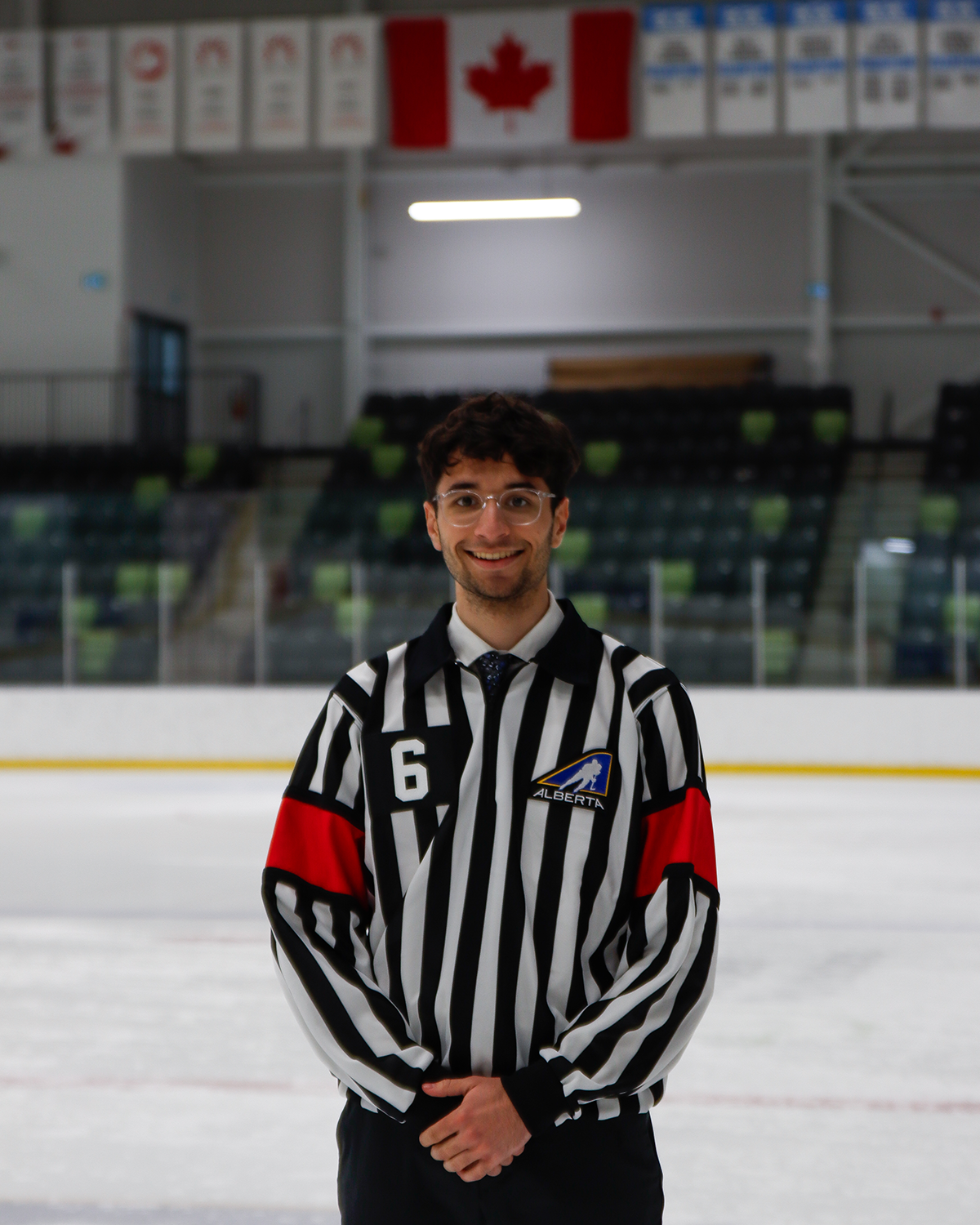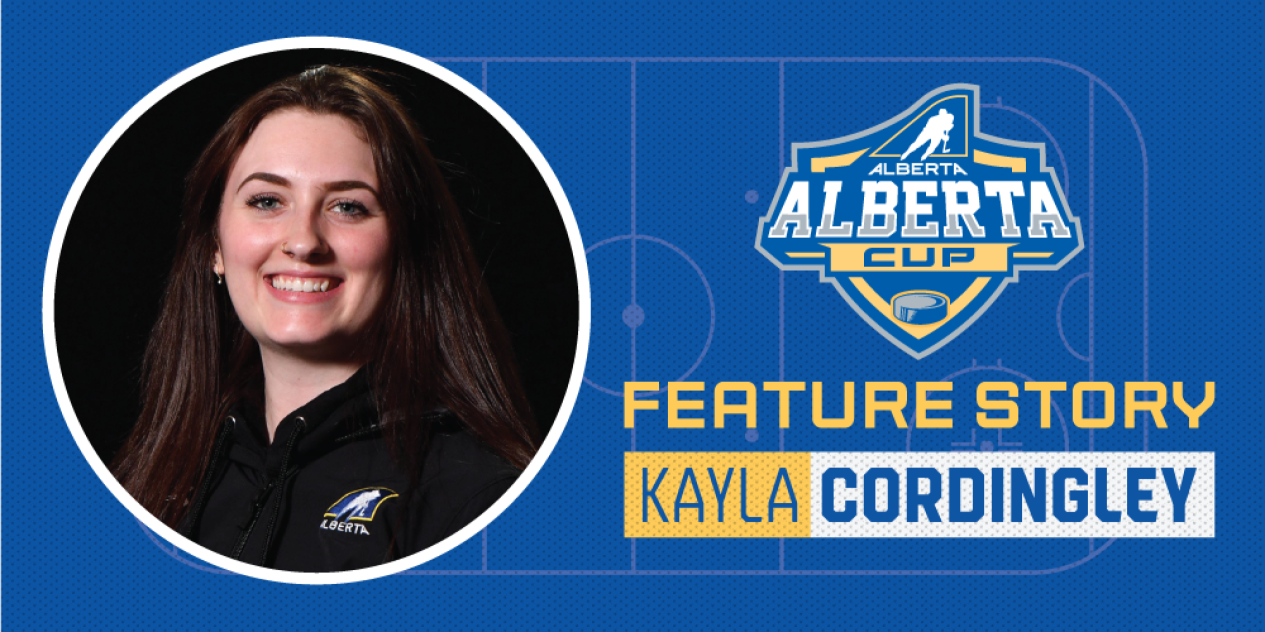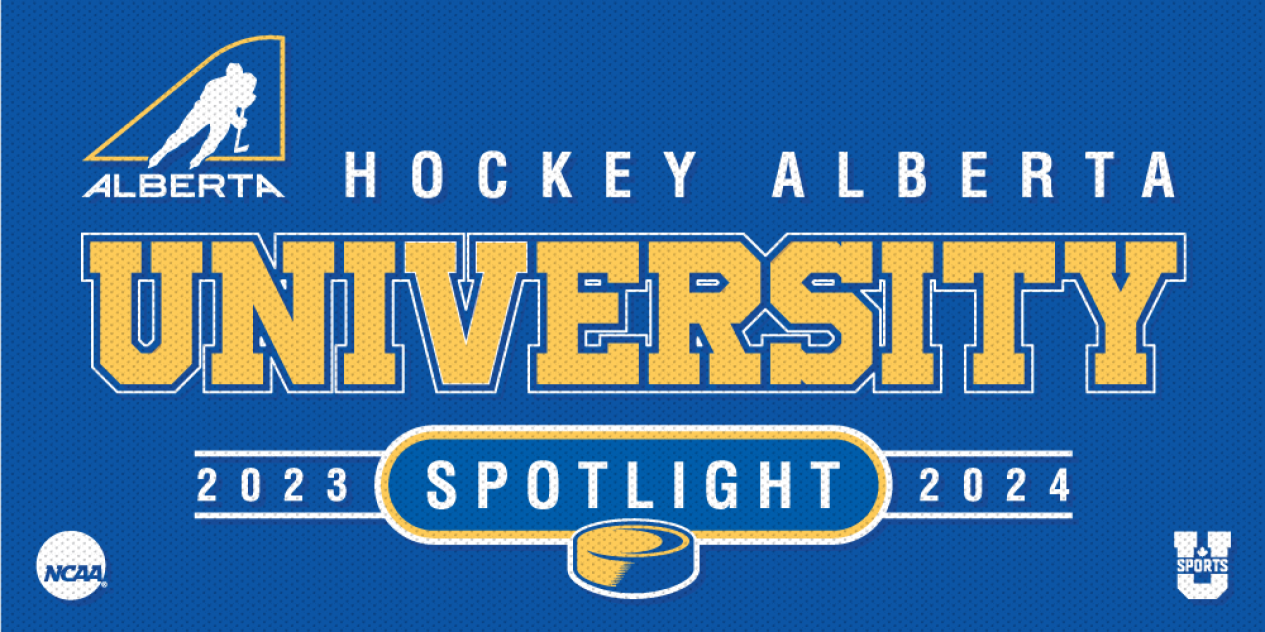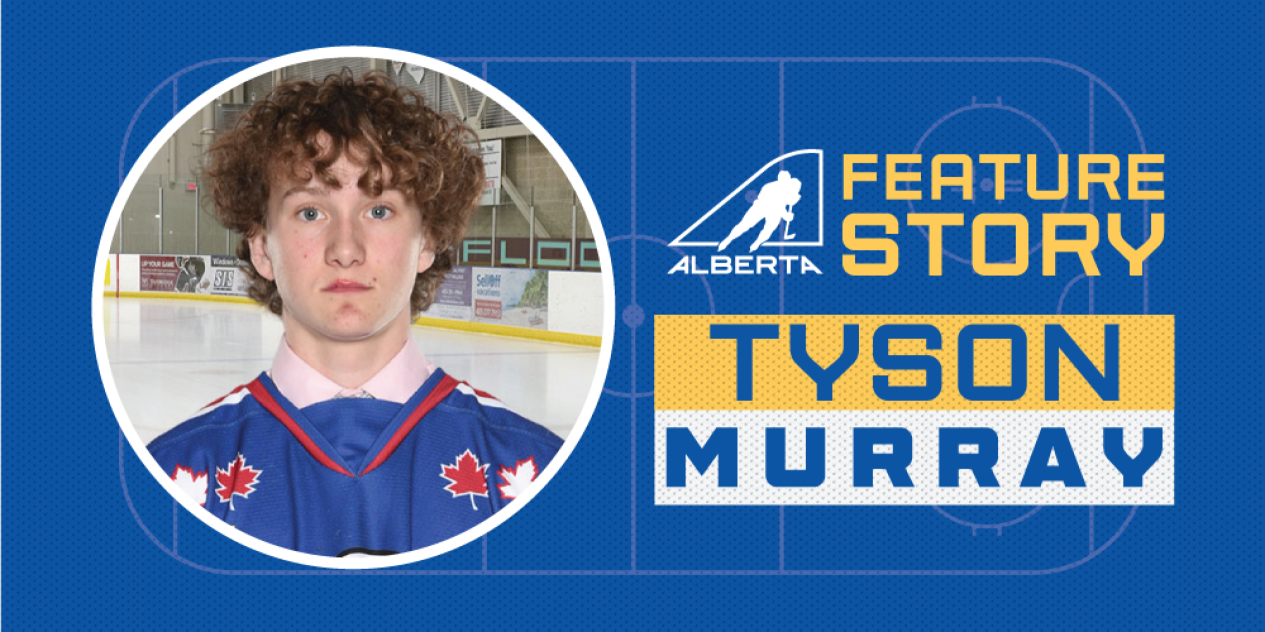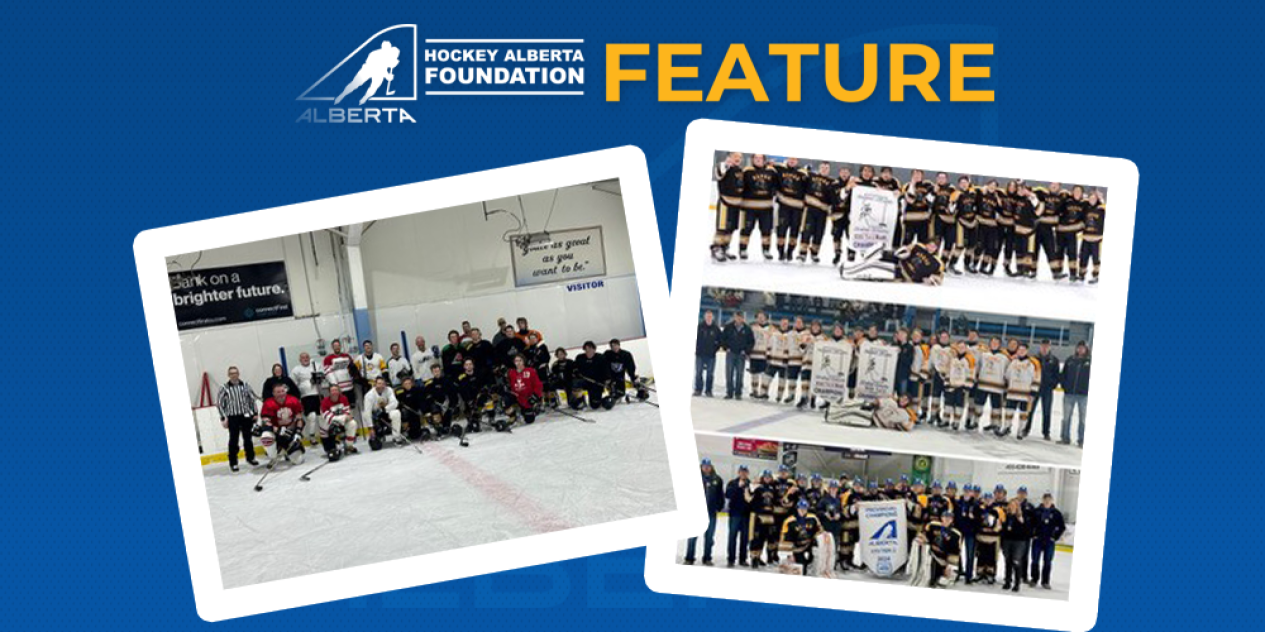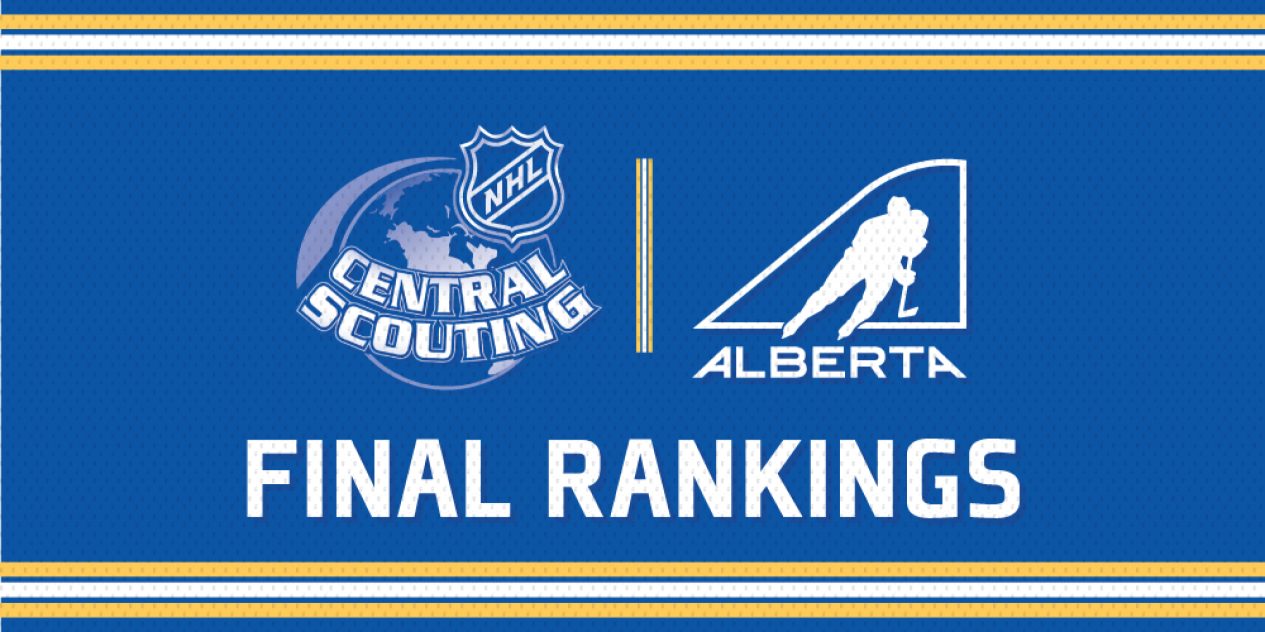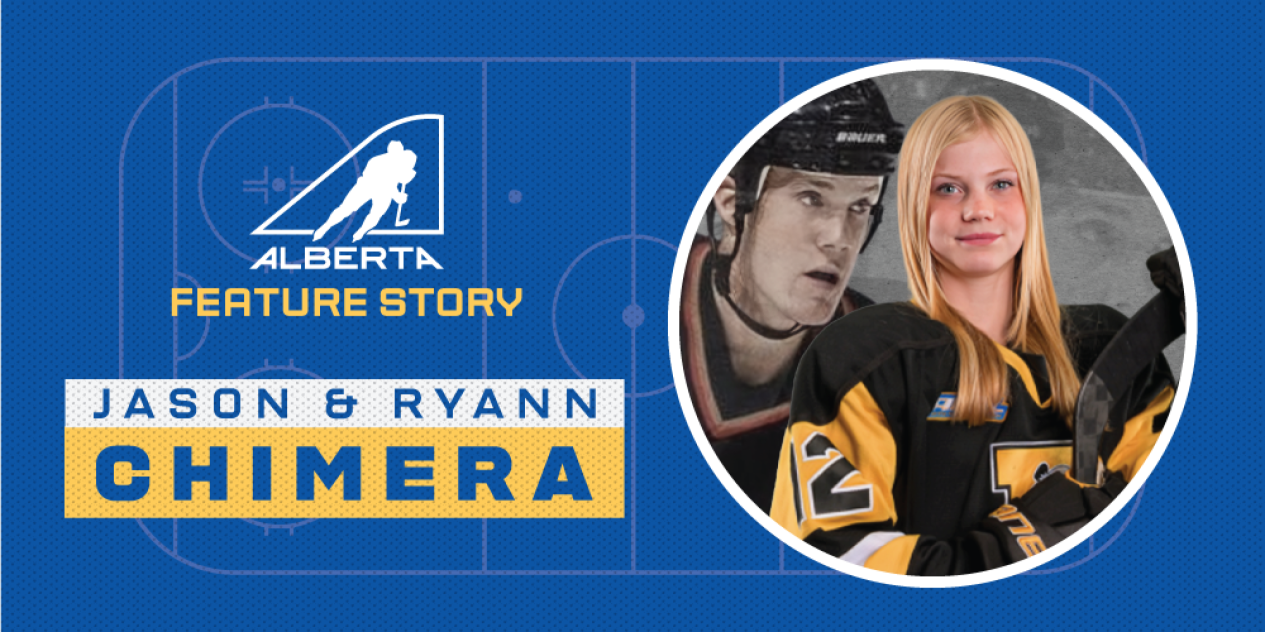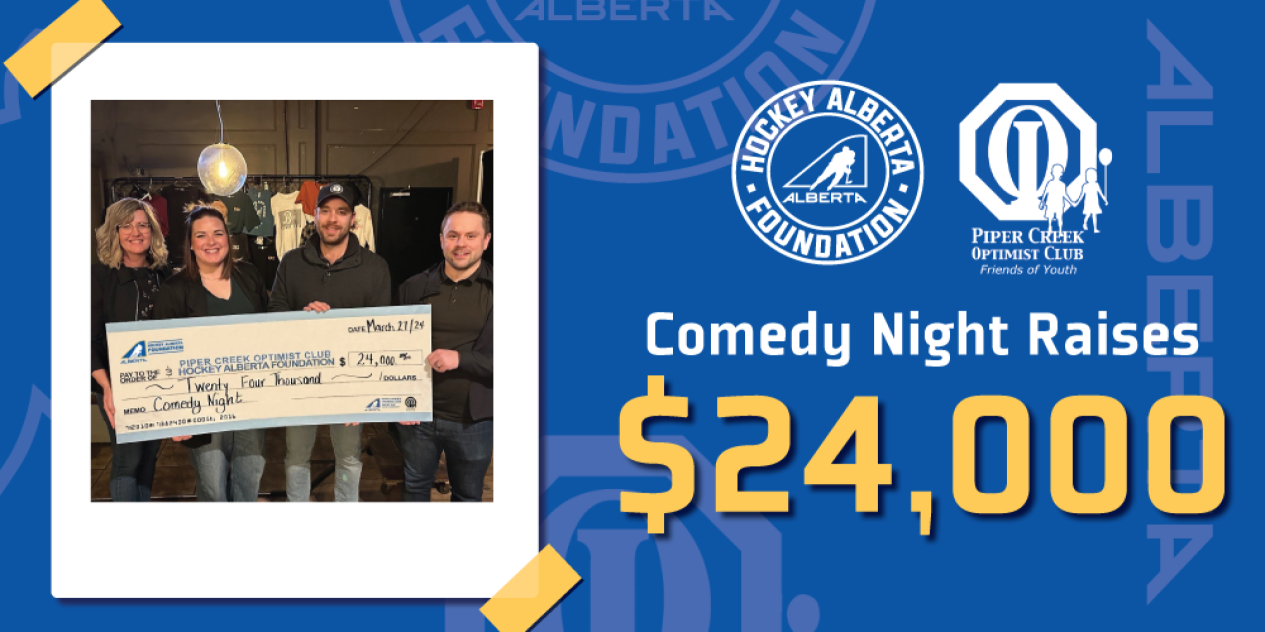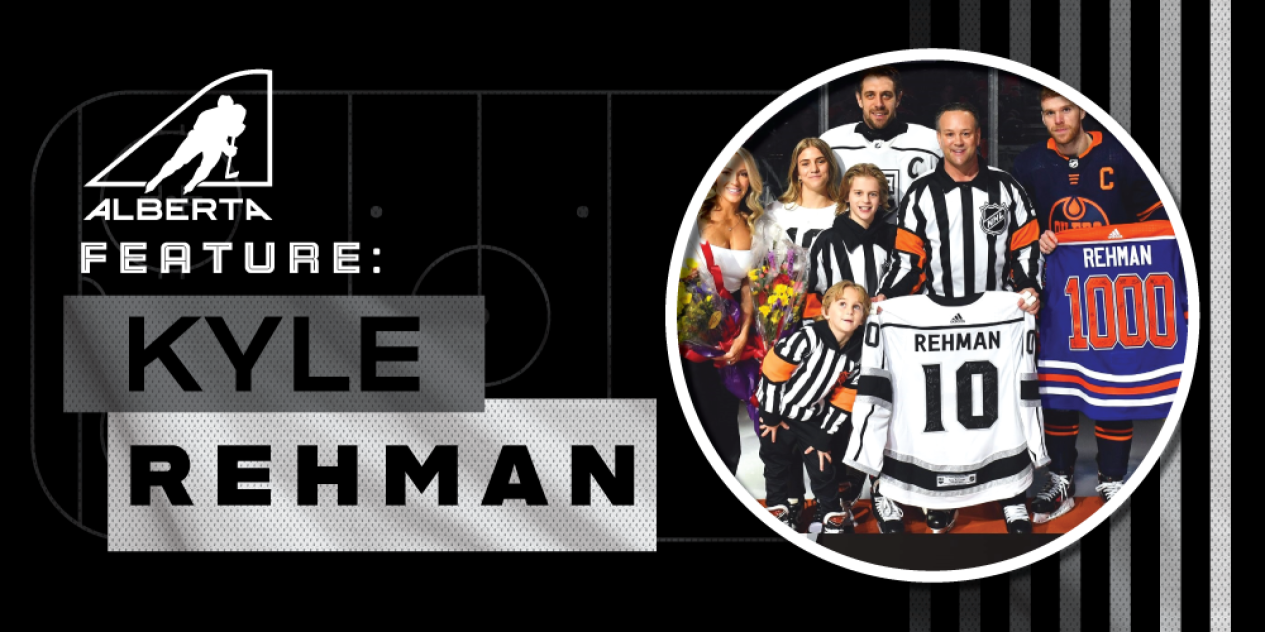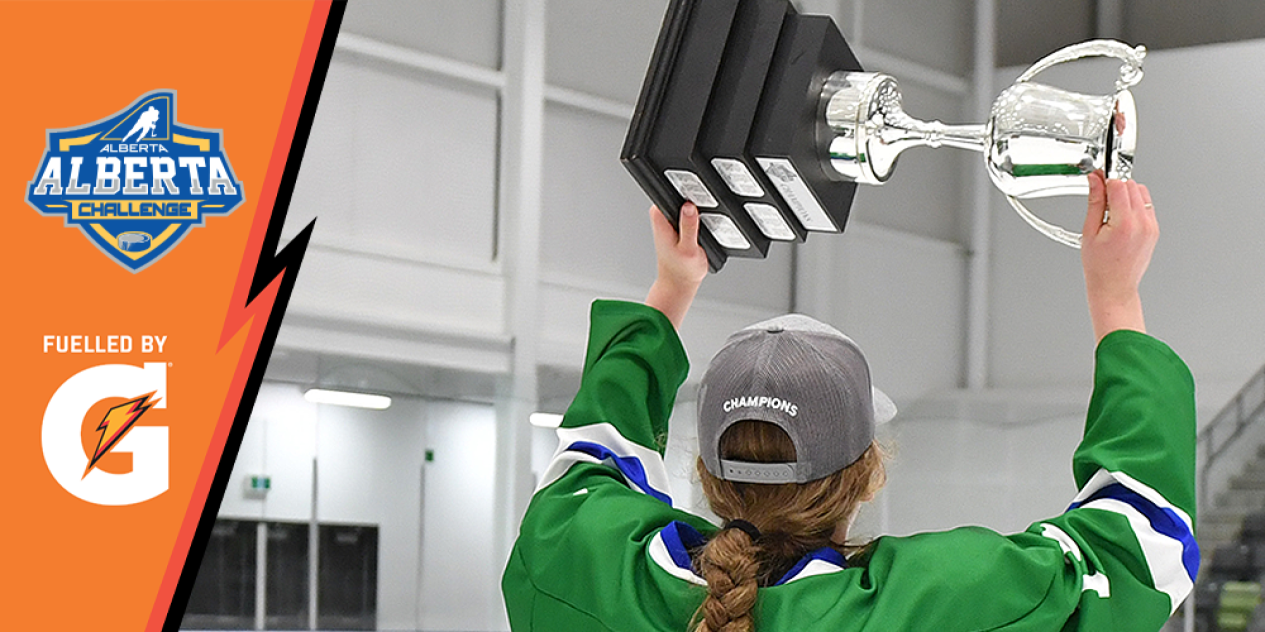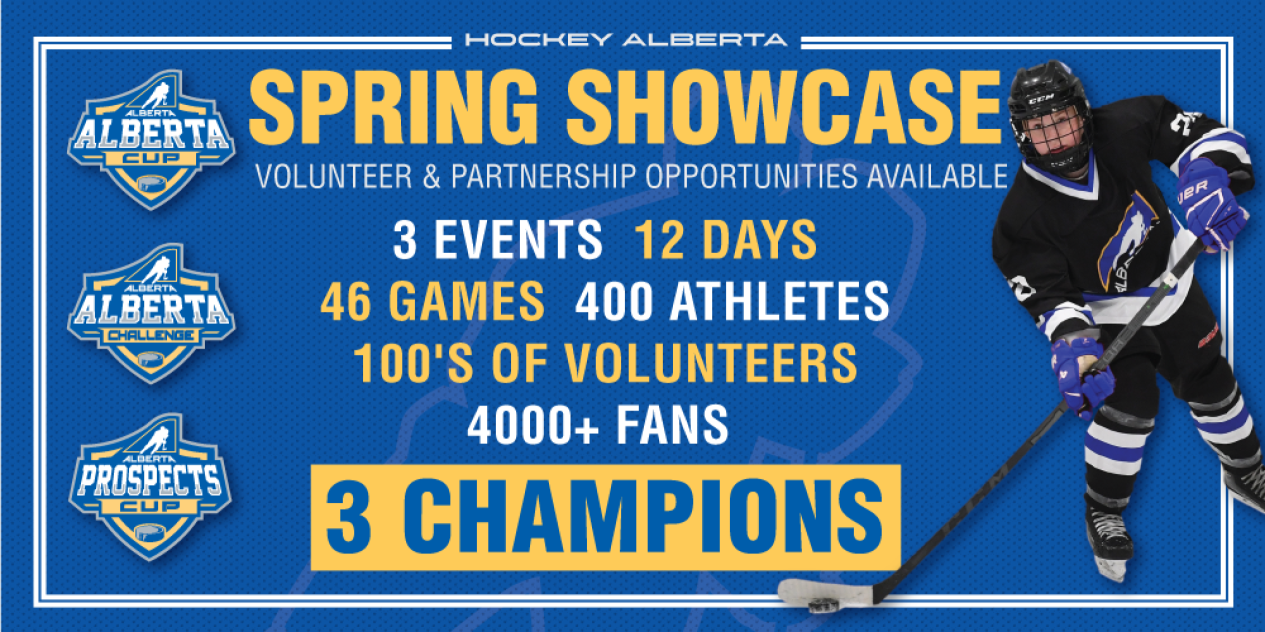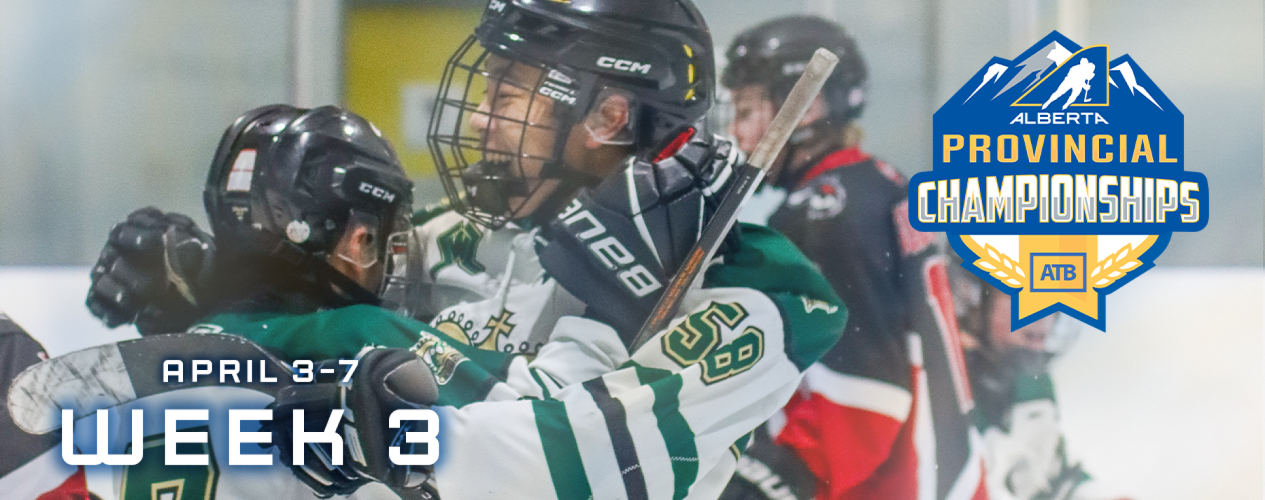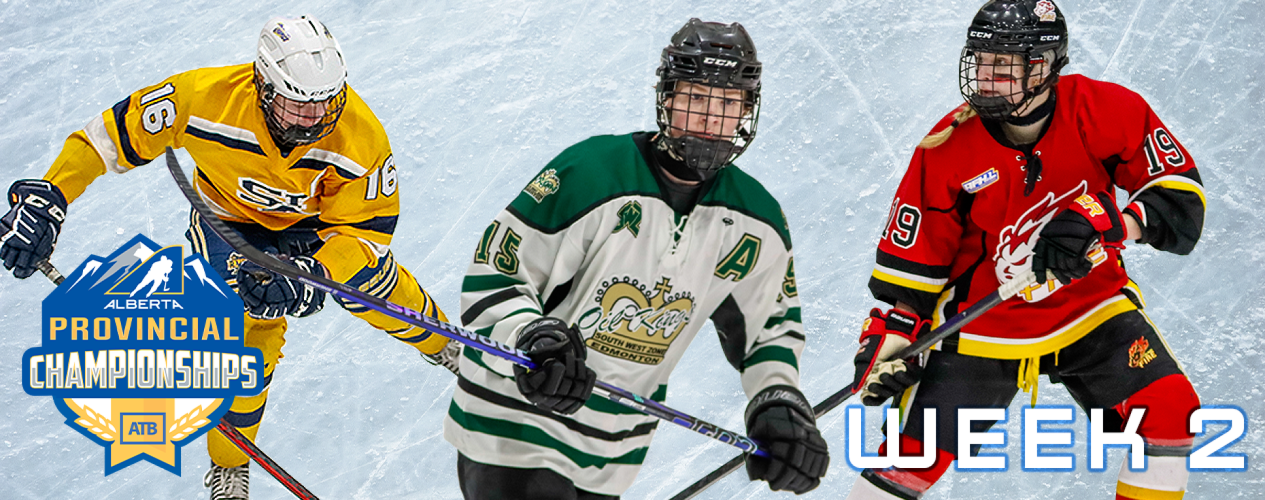RED DEER – Athletes and coaches aren’t the only people involved in the Alberta Cup who are looking to advance their skills with hopes of progressing to the next level.
A group that seemingly gets forgotten about is Hockey Alberta’s group of officials, who go through a rigorous process to get the chance to officiate the Alberta Cup.
“It really starts at the grassroots level where the officials who are at this tournament are identified in their local areas and are recommended for certain Hockey Alberta events over the course of the season such as the AEHL and AFHL showcases, as well as other things such as provincial playdowns and the Alberta Winter Games,” said Colin Watt, Hockey Alberta Officials, Development Coordinator.
Once officials are selected for those events, Watt, along with fellow coordinator Curt L’Heureux pair down the list of officials who are making the jump to the next level.
“We attend those events and are essentially scouting to identify which officials are our top up and comers,” Watt said. Those officials get selected for regional camps for the Alberta Cup. A different group of officials get selected for the Alberta Cup itself and then a separate group also get selected for the summer development camp that runs in July.”
L’Heureux said there are several aspects that he and Watt are looking for in their young officials.
“Skating fitness is one of the major components we look at. You need to be able to skate as well as the players at each level of hockey that you officiate at,” he said. “Communication is another key skill that we look for. Communication with the players, and coaches. Let the coaches know that there is an open line of communication. Judgement is another big one that we look for, regarding minor penalties … whether they get called or get overlook. The last one is standard. We want to see if the officials establish a standard at the beginning of the game and maintain it throughout the rest of the game.”
The key part of official’s development is of course the growth they make on a year-to-year basis. Both Watt and L’Heureux said they take a lot of pride in seeing their officials take that next step.
“It’s cool. To see these officials grow from when they’re identified at 15 or 16-years-old, and see them turn into elite officials, it just goes to show our group’s dedication and hard work going to these events,” L’Heureux said.
“It really rewarding,” Watt added. “I really enjoy when, when you have kind of some of those ‘aha’ moments, when you’ve said something to them, and they grasp it a little bit better. They put it into practice and it’s a little bit of a challenge. It’s different for them, right? Trying new things puts them in kind of a spot where they’re not necessarily as comfortable. But then when they do it well and they can see kind of the fruits of their labour as far as trying something different, that part is really rewarding for us.”
Numerous sports, including hockey, look to recruit new officials each year, but there are challenges, especially when it comes to abusive behaviour from coaches, players, and fans. Watt, who is currently an official in the AJHL, said officiating has taught him a lot about himself on and off the ice.
“You learn so many life skills in officiating, whether it’s dealing with people under pressure dealing with kind of hostile situations. One thing I really harp on a lot is just self evaluation throughout our games, and you learn how to do that type of stuff and have a certain level of self awareness in your personal life as well,” Watt said. “I’ve found personally that it’s made a huge difference in how I conduct myself off the ice all the time. It’s helped a ton as far in my professional life in never having these panic moments or having the ability to deal with some of the more challenging situations.”
Watt highlights the personal relationships he’s made over the years, which includes a longtime friendship with L’Heureux.
“As far as the personal relationships that you gain with the people you work with, it’s a unique situation because you’re working with your partners, but you’re also competing against them,” he said. “But at the end of the day, I think everyone in the officiating world has each’s others backs and it’s a very cool dynamic that you can have such a tight knit group who you know has your back but can also have a healthy and friendly competition with them too.”























